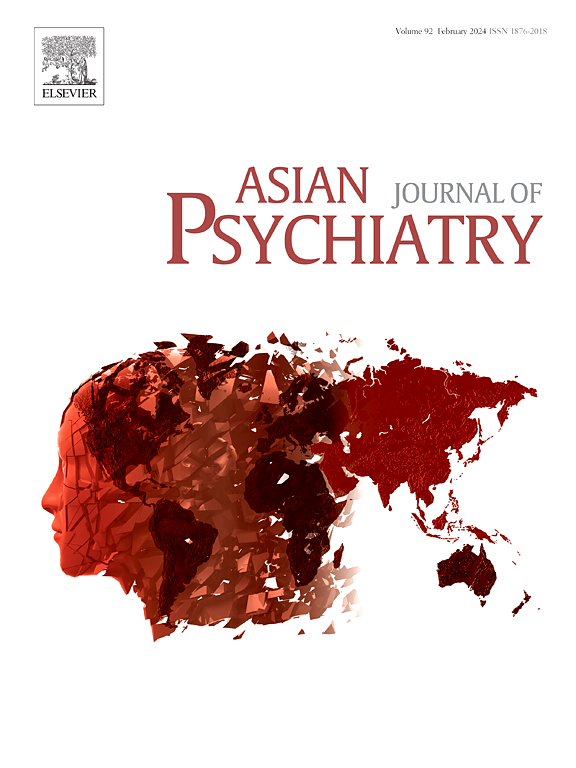帕金森氏病的神经成像和计算病理生理学中的机器学习:综合回顾和荟萃分析
IF 3.8
4区 医学
Q1 PSYCHIATRY
引用次数: 0
摘要
近年来,机器学习和深度学习已经显示出改善帕金森病(PD)诊断的潜力,帕金森病是最常见的神经退行性疾病之一。这项综合分析研究了机器学习和基于深度学习的帕金森病诊断,使用MRI,语音和手写数据集。为了彻底分析帕金森病,本研究收集了来自科学文献、实验调查、公开数据集和全球健康报告的数据。本研究考察了帕金森病的全球历史背景,重点关注其日益增加的患病率和不同地区在治疗可及性方面的不平等。一份综合总结整合了临床调查的基本发现和与帕金森病管理相关的相关数据集。帕金森氏病的全球背景、前瞻性治疗、疗法和药物已经得到了彻底的研究。该分析指出了重大的研究不足,并提出了未来的方法,强调需要更广泛和多样化的数据集以及改进模型可访问性。目前的研究提出了用于诊断帕金森病的Meta-Park模型,其训练、测试和验证准确率分别为97.67 %、95 %和94.04 %。该方法为改善帕金森病的临床决策提供了一种可靠且可扩展的方法。这项研究旨在通过将拟议的方法与对现有干预措施的彻底检查相结合,为早期诊断和有效治疗提供创新的、数据驱动的决策,为患者和医学界带来新的希望。本文章由计算机程序翻译,如有差异,请以英文原文为准。
Machine learning in neuroimaging and computational pathophysiology of Parkinson’s disease: A comprehensive review and meta-analysis
In recent years, machine learning and deep learning have shown potential for improving Parkinson's disease (PD) diagnosis, one of the most common neurodegenerative diseases. This comprehensive analysis examines machine learning and deep learning-based Parkinson's disease diagnosis using MRI, speech, and handwriting datasets. To thoroughly analyze PD, this study collected data from scientific literature, experimental investigations, publicly accessible datasets, and global health reports. This study examines the worldwide historical setting of Parkinson's disease, focusing on its increasing prevalence and inequities in treatment access across various regions. A comprehensive summary consolidates essential findings from clinical investigations and pertinent datasets related to Parkinson's disease management. The worldwide context, prospective treatments, therapies, and drugs for Parkinson's disease have been thoroughly examined. This analysis identifies significant research deficiencies and suggests future methods, emphasizing the necessity for more extensive and diverse datasets and improved model accessibility. The current study proposes the Meta-Park model for diagnosing Parkinson’s disease, achieving training, testing, and validation accuracy of 97.67 %, 95 %, and 94.04 %. This method provides a dependable and scalable way to improve clinical decision-making in managing Parkinson's disease. This research seeks to provide innovative, data-driven decisions for early diagnosis and effective treatment by merging the proposed method with a thorough examination of existing interventions, providing renewed hope to patients and the medical community.
求助全文
通过发布文献求助,成功后即可免费获取论文全文。
去求助
来源期刊

Asian journal of psychiatry
Medicine-Psychiatry and Mental Health
CiteScore
12.70
自引率
5.30%
发文量
297
审稿时长
35 days
期刊介绍:
The Asian Journal of Psychiatry serves as a comprehensive resource for psychiatrists, mental health clinicians, neurologists, physicians, mental health students, and policymakers. Its goal is to facilitate the exchange of research findings and clinical practices between Asia and the global community. The journal focuses on psychiatric research relevant to Asia, covering preclinical, clinical, service system, and policy development topics. It also highlights the socio-cultural diversity of the region in relation to mental health.
 求助内容:
求助内容: 应助结果提醒方式:
应助结果提醒方式:


